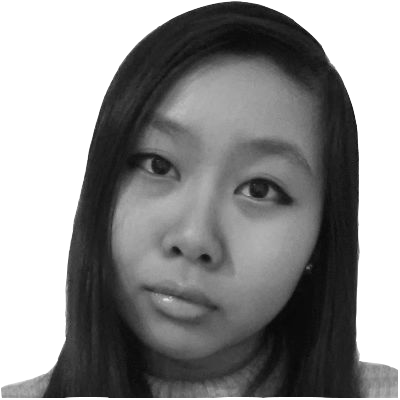Censorship at Warwick?
Warwick University has been ranked as red for censorship and restriction of free speech, according to a Free Speech University Ranking table.
The rankings, commissioned by website Spiked!, employed a traffic light system to categorise 115 universities. Green rankings were awarded to universities deemed to have a hands-off approach to free speech, and red rankings were given to universities described as hostile to free speech and free expression.
41 percent of the universities involved, including Warwick, were marked as red. Meanwhile, 80 percent were seen to censor free speech beyond what the law recommends.
Each university was broken down into the university management body and the students’ union, with the overall rating representing the average result.
Warwick University management was given an amber rating, whereas the Students’ Union (SU) was given a red rating. The rankings were decided from policies and one-off bans or acts of censorship.
The main reason stated for the University management’s amber rating was that, in the University’s ‘Dignity at Warwick’ policy, the definition of harassment includes ‘displaying material that is likely to cause offence to others.’
Tom Slater, the project coordinator, said this clause was cited because: “This could mean practically anything, and could be used to restrict all manner of speech and expression.”
Peter Dunn, director of press and policy at the University, told the Boar: “I am not aware of any aspect of the University’s ‘Dignity at Warwick’ policy being accused of being employed in any actual act of alleged censorship.
“[The rankings] would appear not to reflect some of the most basic legal obligations placed on any public body which would therefore make the utility of those rankings limited at best”.
However Mr Slater responded, saying: “it sets a dangerous and chilling precedent … I suggest that the University scraps this clause so as to ensure this never takes place”.
The SU’s red rating was based on several policies and actions, including its equal opportunities policy, the removal of the Sun and the Daily Star from campus, and the SU’s campaign launched against Moo Bar’s allegedly sexist wallpaper.
Spiked! criticised an equal opportunities policy that stated: “The union, and all of its clubs and societies that organise events, must be fully satisfied with an agency’s Equal Opportunities policy before contracting any artists on that agency’s books.
“If an artist under contract is deemed to be racist, sexist, ableist, homophobic or transphobic (or not adhering to this bylaw), that artist should not be re-engaged and the agency from which the artist was obtained should be reviewed.”
Mr Slater said: “If we want to take on prejudice, we need to take it on in debate. How can we hope to destroy prejudice by simply hiding it from view?”
However, Isaac Leigh, societies officer and next year’s SU president, emphasised: “All students had the opportunity to democratically decide whether to lobby the University to remove the Sun from sale on campus.
“This is not censorship – it’s a campaign which aims to raise awareness and discussion on what is becoming an increasingly prominent social issue.
“There is a difference between a boycott and a ban – one is a democratic tactic used to effect change, while the other is an autocratic, reactionary measure imposed arbitrarily.”
The SU also felt that the rankings were limited and “are part of a publicity-seeking and politically loaded campaign on the part of Spiked!”
However, Mr Slater asserted: “Censorship on UK campuses has reached epidemic levels, and it’s time something was done about it …Students across the UK are sick to the back teeth of these patronising and illiberal measures.”
This ranking also follows incidents on campus which include the University’s refusal to take part in the green league, the violence at Senate House, and the disruption of a People and Planet grim reaper protest during an engineering careers fair.
Mr Dunn stressed that the reasoning behind not taking part in the green university rankings was: “The survey has become so over ambitious and so complicated in the information that it requests that we are no longer willing to assist with the survey in its current form.”
Over the past year, clubs and societies have also kept quiet on sanctions and disputes being dealt by the SU. This includes the barring of the Rugby Club from SU events and a dispute between Warwick Labour and Anti-Racism society.
Mr Leigh responded to the silence of societies and clubs: “While it may be the case that societies and clubs would be advised not to speak to the media in certain instances (particularly those involving confidential disciplinary processes), obviously this would be subject to the specific individual circumstances.”

News Editor
On censorship: editor’s note
As News editor, I would like to say that while I am against any sort of censorship and restriction of information, I am completely against any existence of sexism, racism or homophobia on campus – or anywhere at that.
I agree with the University and the SU that the censorship rankings by Spiked! online are limited. I am not saying that there is no censorship on campus, but that the definition of ‘censorship’ by Spiked! is pointing in the wrong direction.
Spiked! deems the removal of offensive material from campus ‘censorship’, citing examples like the removal of the Sun from campus and the campaign against Moo Bar’s wallpaper last year.
As Isaac Leigh said, these are not bans or acts of censorship, these are democratic boycotts which stand against important social issues, like sexism and racism.
I am surprised Spiked! has not deemed the withdrawal of a fascist leader from campus last year ‘censorship’, because, theoretically, we should let the fascist leader express his racist opinions on campus.
If one were to survey censorship on campus, the removal of offensive material on campus is not the place to find it.

Comments (1)
‘these are democratic boycotts which stand against important social issues, like sexism and racism.’
It’s not censorship if a minority of the student population decide – largely within a vacuum of like-minded students – vote to get stuff off campus?
There’s 23,872 students at Warwick. 1653 people voted in the Page 3 vote. 918 voted for the ban. That’s 3.8% of the student body.
Ignorance of the vote and apathy – both of student politics and the issue itself – are likely reasons why people didn’t vote against the measures cited.
But it’s not enough to say: ‘100% of the student body *could* have voted’. While it might technically be democratic, if 96.4% of people didn’t advance an implemented measure, one should be very uncomfortable considering as such.
As for: ‘stand against important social issues, like sexism and racism.’. Most forms of censorship have been advanced with: ‘its for the betterment of society’. So, again, it’s something one should be uncomfortable with.